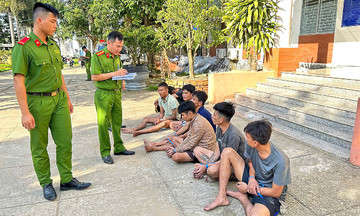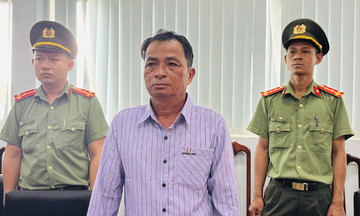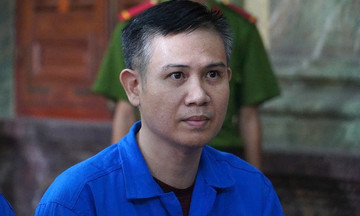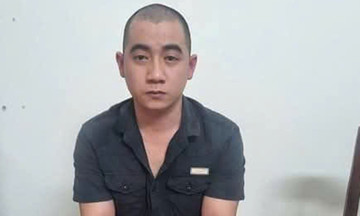On 11/9, the Hanoi People's Court continued the fourth day of the trial concerning the bidding violations across five provinces and cities, resulting in a loss of 120 billion VND. Nguyen Duy Hung, chairman of Thuan An Group, the mastermind behind the scheme, faced a prosecution recommendation of 10-11 years in prison, the highest among the 29 defendants.
Pham Thai Ha, former Deputy Head of the National Assembly Office and former assistant to the National Assembly Chairman, received a recommended sentence of 5-6 years for abusing his position and power for personal gain.
Over a day of defense, 40 lawyers, while not contesting the charges, argued that the recommended sentences were "excessive," failing to consider the roles, context, and nature of the crimes. Mr. Ha's lawyer argued his client's wrongdoing was "not serious," and his role was minimal. The lawyer added that the loss of his career and political future was punishment enough.
Refuting the defense arguments, the prosecutor emphasized careful consideration of each defendant's role, actions, and consequences. They stated that the recommended sentences, incorporating all mitigating circumstances, were "lenient and appropriate."
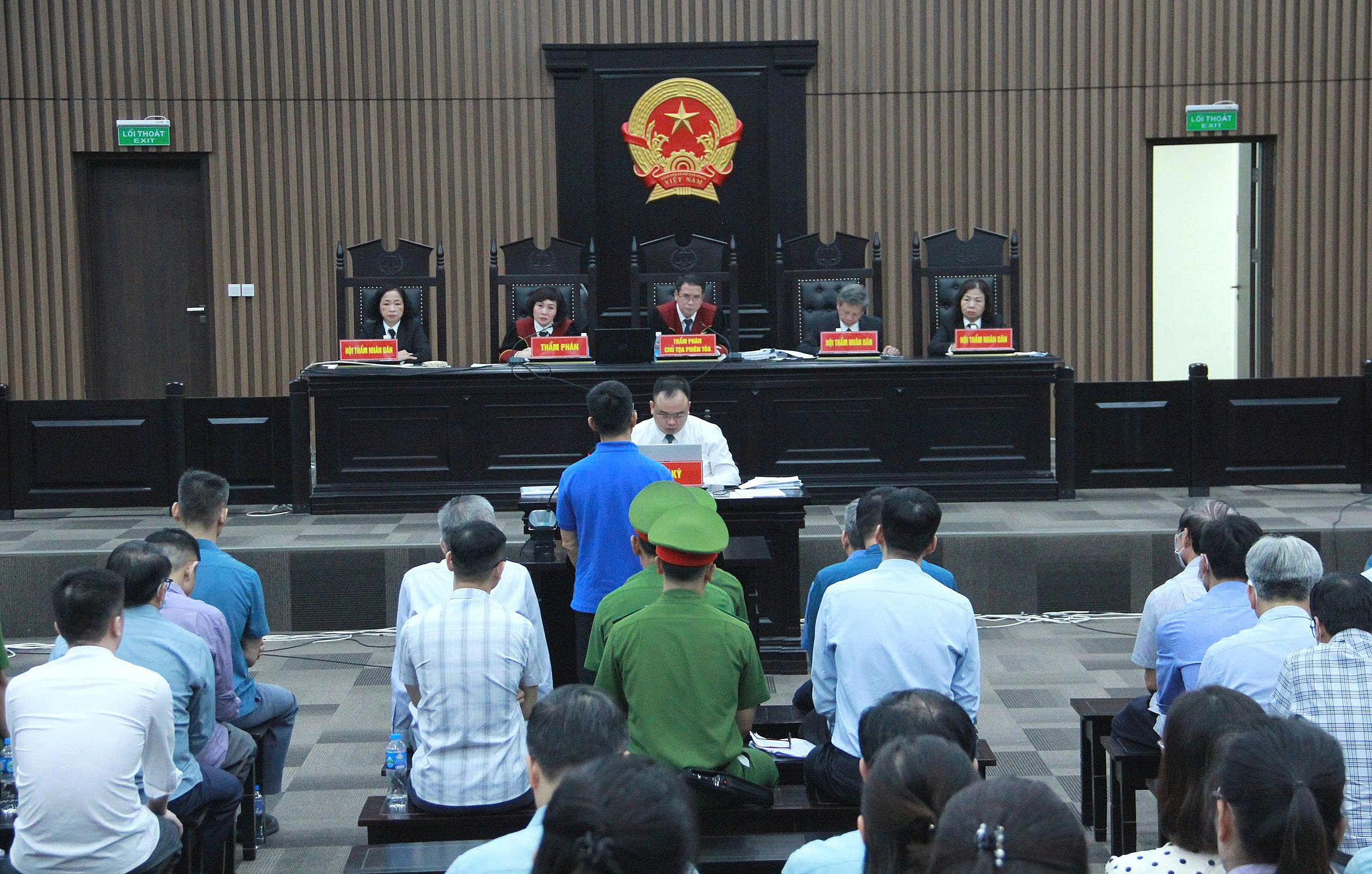 |
The first-instance trial at the Hanoi People's Court, presided over by Judge Vu Quang Huy. Photo: Danh Lam. |
The prosecutor cited that 27 defendants faced charges of violating bidding regulations with serious consequences, carrying a penalty of 10-20 years. However, the recommended sentence for mastermind Hung was 10-11 years. Seven defendants even received suspended sentences of 18-36 months.
In the case of abuse of power while on duty, Le O Pich, former Vice Chairman of Bac Giang Province People's Committee, received a 3-4 year recommendation, compared to the 7-15 year potential sentence.
Similarly, Pham Thai Ha, charged with abusing his position for personal gain, faced a 5-6 year recommendation, despite the potential sentence of up to 20 years or life imprisonment.
Mr. Hung's lawyer argued for leniency, highlighting Thuan An's contributions to society through numerous high-quality, timely infrastructure projects. The lawyer urged the prosecutor to apply Resolution 68 of the Politburo on private sector development, encouraging a favorable environment for businesses.
The lawyer compared the case to the Phuc Son Group's bidding fraud case tried in June-July, where Phuc Son caused over 500 billion VND in damages, yet former chairman Nguyen Van Hau (Hau "Phao") received a 7-year sentence. The lawyer argued that a 10-11 year recommendation for Mr. Hung, whose company caused 120 billion VND in damages, was "unfair."
The lawyer suggested a sentence of 3 to 3.5 years for Hung would be sufficiently strict, deterrent, educational, and fair, considering the two cases and the financial damage.
Prosecutor Bui Thanh Hang immediately responded, stating that accurate data was necessary for comparison. The lawyer's information about the Phuc Son case was "completely false." As a prosecutor in the Phuc Son trial, Ms. Hang clarified that Hau "Phao" faced three charges and a 15-16 year recommendation for the bidding violation alone. After Hau paid an additional 768 billion VND in restitution, the prosecution reduced the recommendation to 11-12 years, and the court ultimately sentenced him to 9 years, not 7.
In the Thuan An case, Hung faced a 15-20 year sentence for bidding violations in five projects and directing 56 billion VND in bribes to 22 officials. This included "other consequences" beyond financial damage. Comparing cases was inaccurate, and the "lawyer should be more careful in their defense."
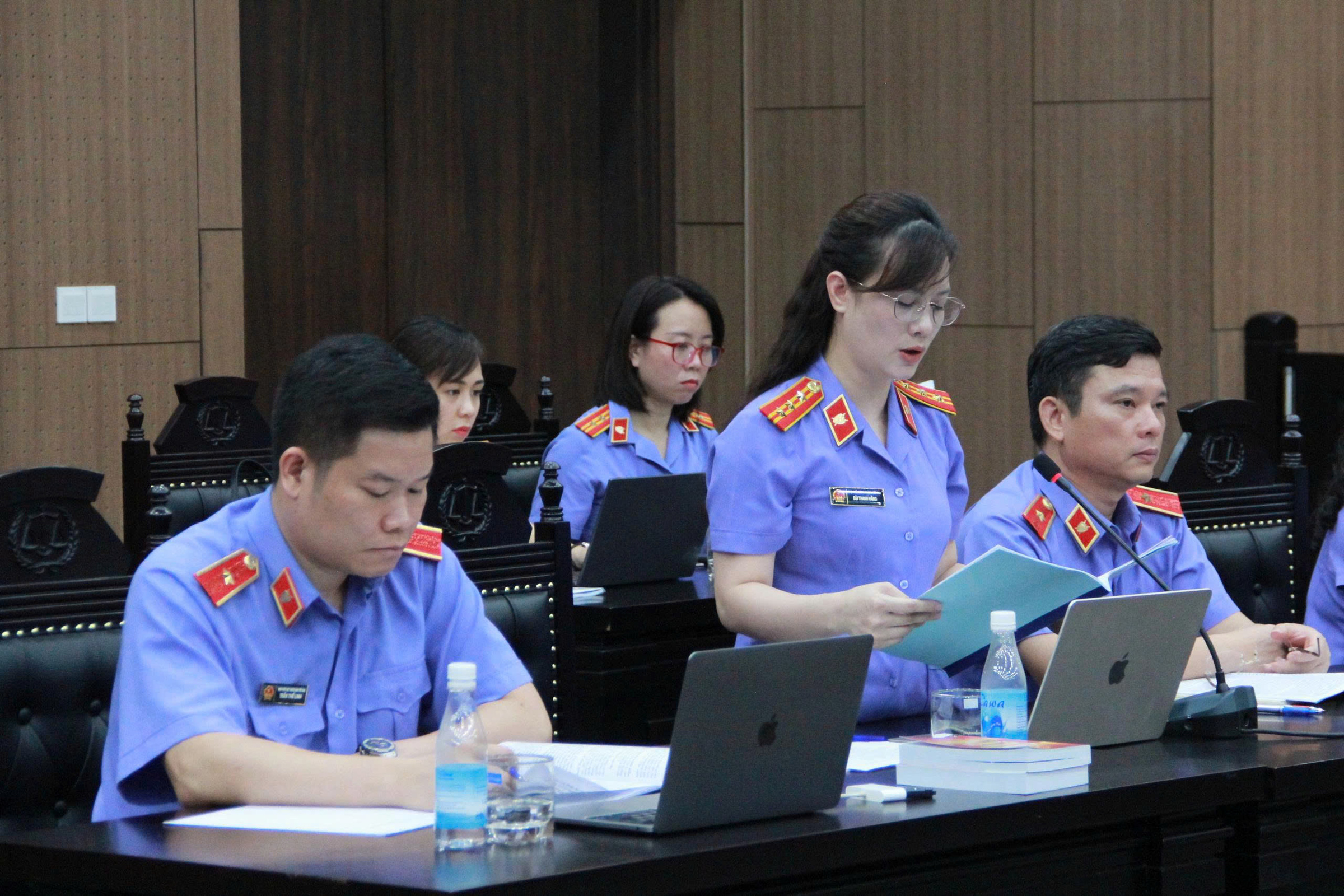 |
Prosecutor Bui Thanh Hang affirmed that prioritizing private economic development does not condone illegal acts. Photo: Danh Lam. |
Ms. Hang explained Resolution 68 encourages transparent and healthy private sector development, but "does not condone illegal acts." "Did the defendants' actions in this case contribute to healthy economic development?" she questioned.
The prosecution deemed the case a prime example of bidding violations, spanning five projects and involving 29 defendants. Thuan An's winning bids revealed collusion to participate and secure contracts, partnering with other companies when lacking qualifications. Upon awarding Thuan An the contracts, officials provided advance access to budget estimates, designs, and bidding documents.
"Why were other contractors introduced to qualify Thuan An for these projects? Why was Thuan An given access to budget estimates and designs before bidding, as if they had already won?" the prosecutor questioned, asserting that "backdoor dealings and connections," not transparency and competence, determined Thuan An's project involvement.
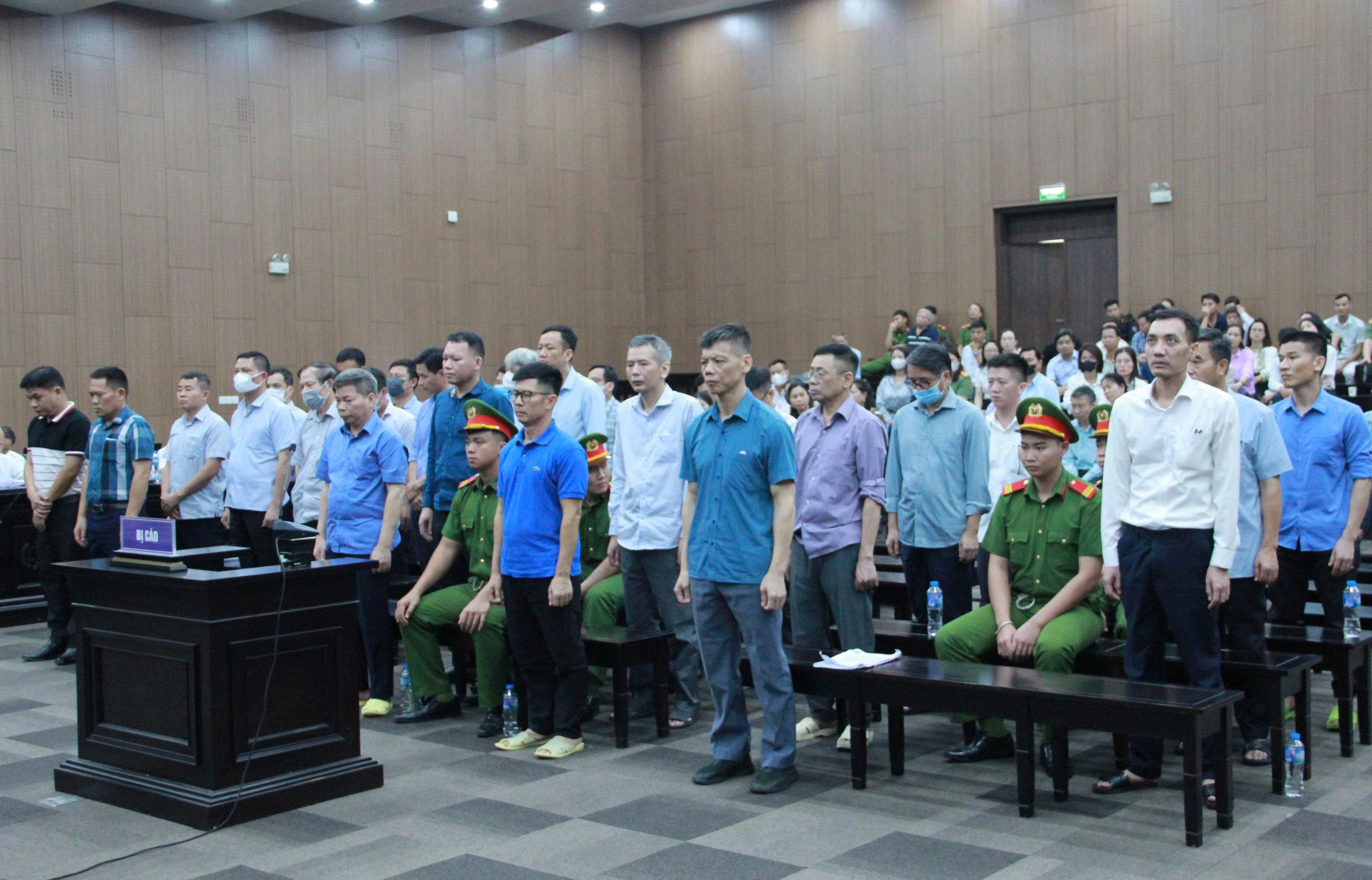 |
Nguyen Van Hung, former chairman of Thuan An Group (front row, blue t-shirt, wearing glasses), and other defendants at the trial. Photo: Danh Lam. |
Another key aspect was the manipulation of bidding documents to favor Thuan An, evident in both the indictment and officials' testimonies. The defendants claimed Thuan An was qualified and the projects were successful. "We're not saying the projects lack quality, but the fact remains that Thuan An won through fraud, causing losses to the State," the prosecutor analyzed.
"Had the defendants acted correctly, fulfilling their responsibilities, choosing qualified contractors at competitive prices, they would have benefited the State, perhaps even earning commendations," the prosecutor added.
Earlier, the prosecution deemed the case exceptionally serious, causing significant state losses. The violations stemmed from both incomplete bidding regulations and the defendants' moral decline, exploited by businesses for personal gain and creating special interest groups.
The debate concluded. The defendants will deliver their final statements this afternoon.
Thanh Lam







